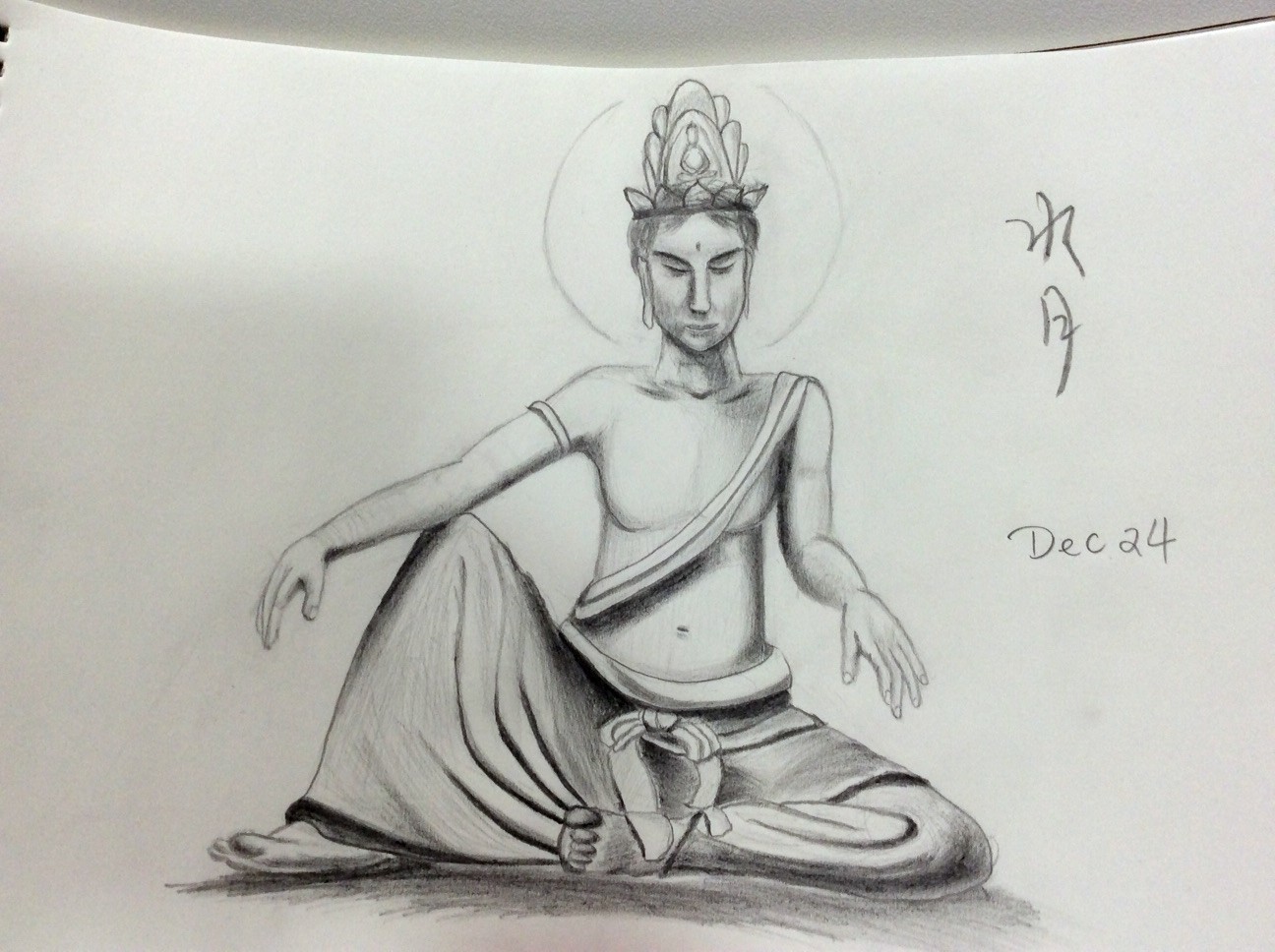Heart Sutra
Heart Sutra is one of the most quintessential Mahayana Buddhism texts. Due to its short length, it is likely the most known Buddhism text in China (the other one would be Diamond Sutra). It has been translated to Chinese multiple times and the most popular version is by Xuanzang (602–664 AD), who traveled to Indian alone illegally, studied there, and brought back a great number of Buddhism texts in a 17-years trip. His story later became the inspiration of the novel Journey to the West. Legend says that he learned Heart Sutra on his way to Indian from a foreign traveling monk.
In this post, I will give an English translation based on the Chinese text. Translation of technical terms is simplified so hopefully it will be easier for laymen. The original Sanskrit pronunciation and Chinese texts are displayed along side as well. A nice Sanskrit chanting is here
Disclaimer: I do not have formal education in Buddhism, thus my translation may be inaccurate.
Arya-avalokitesvaro bodhisattvo Gambhiram prajnaparamita caryam caramano Vyavalokayati sma panca-skandhas Tamscha svabhava sunyam pasyati sma
观自在菩萨,行深般若波罗蜜多时,照见五蕴皆空,度一切苦厄。
When practising deep wisdom, Avalokitesvara saw that all composite existences had no self nature. This experience transcended all pain and suffering. Thus he told Sariputra the following:
Iha sariputra Rupam sunyata, sunyataya rupam Yad rupam sa sunyata, Sunyataya tad rupam Evam eva, vedana samjna, samskara vijnanam.
舍利子,色不异空,空不异色;色即是空,空即是色。受、想、行、识,亦复如是。
Inputs to sense organs have no self nature; Outputs of sense organs have no self nature; Impressions derived from these outputs have no self nature; Wishes conditioned on impressions have no self nature; And consciousness built on wishes also have no self nature.
Iha sariputra sarva dharmah, sunyata laksanah Anutpanna, Aniruddha, Amala, Aviamala, Anuna, Aparipurnah. Tasmac sariputra sunyatayam na rupam na vedana, na samjna, na samskarah na vijnanam. Na cakshuh-srotra, ghrana-jihva, kaya-manamsi. Na rupa sabda gandha rasa sprashtvaya dharmah. Na cakshur-dhatur yavan, na manovijnana-dhatuh. Na avidya, na avidya-ksayo, yavan na jaramaranam, na jaramarana-ksayo.
舍利子,是诸法空相,不生不灭,不垢不净,不增不减,是故空中无色,无受、想、行、识;无眼、耳、鼻、舌、身、意;无色、声、香、味、触、法;无眼界,乃至无意识界;无无明,亦无无明尽;乃至无老死,亦无老死尽。
Thus all phenomena have no self nature. Their nature is of no birth no death, no clean no filthy, no increase no decrease. No observer, no observed; No object, no subject; No dualism.
Na duhkha, samudaya, nirodha, marga. Na jnanam, na praptir, na-apraptih. Tasmac Sariputra Apraptivad Veharanty acitta Avarnah. Citta Avarana nastitvad atrastro Viparasya atrikranto nishta nirvanah.
无苦、集、灭、道,无智亦无得。以无所得故,菩提萨埵,依般若波罗蜜多故,心无罣碍,无罣碍故,无有恐怖,远离颠倒梦想,究竟涅槃。
Ultimately, there is no (Buddhism) teaching to learn and there is nothing to gain. With this experience, enlightened beings have no worry, reach non-fear, depart from wishes, and achieve self liberation.
Tryadva vyavashitah, sarava buddhah prajna - paramitam Astritya Anuttaram samyak sambodhim Ambhisumbuddhanah. Tasmac jnatavyam prajna-paramitam maha mantro. Maha Vidya mantra. Anuttara mantro. Asamasama mantrah. Sarva dukha prasamanah, satyam Amityuavat.
三世诸佛,依般若波罗蜜多故,得阿耨多罗三藐三菩提。故知般若波罗蜜多,是大神咒,是大明咒,是无上咒,是无等等咒,能除一切苦,真实不虚。
Buddhas from the past, present, and future all reach enlightenment from practising wisdom. Thus wisdom practice is the ultimate practice. It can eliminate all suffering.
Prajna-paramittam ukto mantrah, tadyata: Gate , Gate , Paragati, Parasam gate Bodhi svaha
故说般若波罗蜜多咒,即说咒曰:“揭谛、揭谛,波罗揭谛,波罗僧揭谛,菩提萨婆诃。”
(This is a sentence for chanting. Historically, it is not translated. The literal meaning is something like “come together to the other shore”.)



